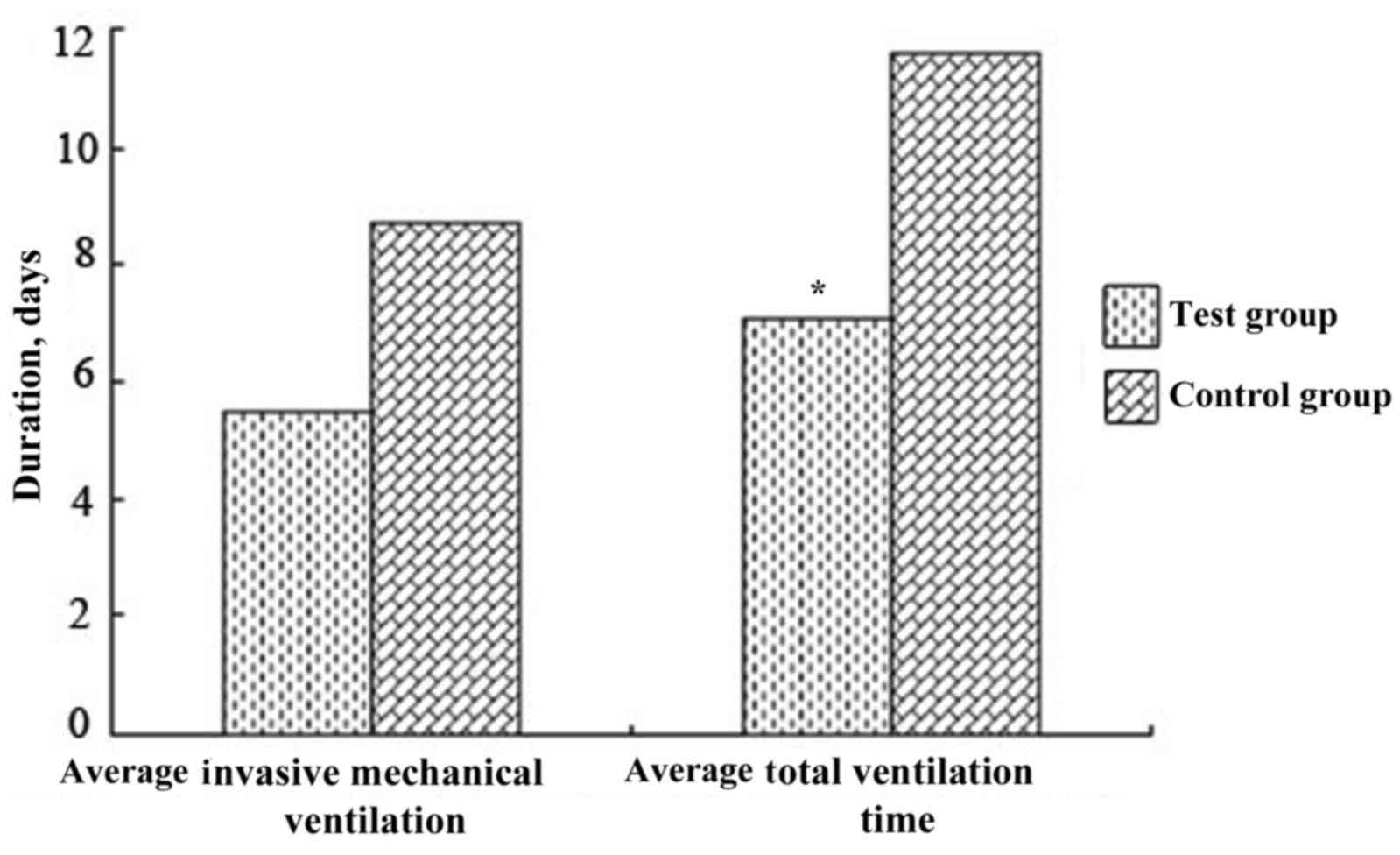|
1
|
Komiya K, Ishii H, Murakami J, Yamamoto H,
Okada F, Satoh K, Takahashi O, Tobino K, Ichikado K, Johkoh T and
Kadota J: Comparison of chest computed tomography features in the
acute phase of cardiogenic pulmonary edema and acute respiratory
distress syndrome on arrival at the emergency department. J Thorac
Imaging. 28:322–328. 2013. View Article : Google Scholar : PubMed/NCBI
|
|
2
|
Cardinale L, Volpicelli G, Lamorte A,
Martino J and Andrea Veltri: Revisiting signs, strengths and
weaknesses of standard chest radiography in patients of acute
dyspnea in the emergency department. J Thorac Dis. 4:398–407.
2012.PubMed/NCBI
|
|
3
|
Wang HY: The role of cytokines and
inflammatory mediators in the pathogenesis of acute respiratory
distress syndrome. Chin J Lung Dis: Electron Edit. 7:83–86.
2014.
|
|
4
|
Ma LJ and Li WP: Jin luminescence acute
lung injury/acute respiratory distress syndrome: Research progress
in the pathogenesis of the disease. Chin J Lung Dis: Electron Edit.
6:65–68. 2013.
|
|
5
|
Tangvarasittichai S, Pongthaisong S and
Tangvarasittichai O: Tumor necrosis factor-A, interleukin-6,
C-reactive protein levels and insulin resistance associated with
type 2 diabetes in abdominal obesity women. Indian J Clin Biochem.
31:68–74. 2016. View Article : Google Scholar : PubMed/NCBI
|
|
6
|
Kim S, Yamamoto K, Nakamura Y, Otoyo Y and
Yamatodani A: A possible mechanism of cisplatin-induced tumor
necrosis factor (TNF)-α production in murine macrophages. Pharmacol
Pharm. 4:146–151. 2013. View Article : Google Scholar
|
|
7
|
Yan X, Wang XY, Sheng YH, Zhu L, Zhang LD
and Zang Q: Exploration of the theory of ‘Fei and Dachang being
interior-exteriorly related’ from observing changes of inflammatory
cytokines and oxygen free radicals in the lung tissue of ulcerative
colitis rats. Zhongguo Zhong Xi Yi Jie He Za Zhi. Zhongguo Zhong Xi
Yi Jie He Za Zhi. 34:455–459. 2014.(In Chinese). PubMed/NCBI
|
|
8
|
Wang JL and Hu JL: New progress of
respiratory support therapy for treating acute respiratory distress
syndrome. J Clin Pulmon Med. 533–536. 2016.
|
|
9
|
Yuan WF, Li L, Li YF, et al: Effects of
TNF-α on lung tissue apoptosis in mice with acute lung injury
induced by lipopolysaccharide. Int J Respirat. 32:565–568.
2012.
|
|
10
|
Hudord WE, Bigatello LM, Haspel KL, Hess
DR and Warren RL: Critical care handbook of the massachusetts
general hospital. 3rd edition Shenyang: Liaoning Science and
Technology Press; pp. 257–267. 2001
|
|
11
|
Bein T, Grasso S, Moerer O, Quintel M,
Guerin C, Deja M, Brondani A and Mehta S: The standard of care of
patients with ARDS: Ventilatory settings and rescue therapies for
refractory hypoxemia. Intensive Care Med. 42:699–711. 2016.
View Article : Google Scholar : PubMed/NCBI
|
|
12
|
Liang JY, Jia JF and Peng NG: Clinical
analysis of acute respiratory distress syndrome caused by blunt
chest trauma. Chin J Tradit Chin Med. 02:139–140. 2010.
|
|
13
|
Huang YZ and Qiu HB: Current situation and
challenge of mechanical ventilation strategy for acute respiratory
distress syndrome. Intern Med Theory Pract. 05:470–475. 2010.
|
|
14
|
Yang LJ: Serum levels of IL-6, IL-8, TNF-,
hs-CRP and lung function in patients with moderate to severe
chronic obstructive pulmonary disease. J Clin Pulmon. 481–484.
2016.
|
|
15
|
Scharl M: Pathophysiological role of TNF
in inflammatory bowel disease: TNF and its effect on innate immune
defense. Front Gastroint Res. 34:49–55. 2015. View Article : Google Scholar
|
|
16
|
Sun ZJ, Lu Q and Li YP: Cytokines and
inflammatory mediators in acute respiratory distress syndrome.
Zhongguo Wei Zhong Bing Ji Jiu Yi Xue. 15:186–189. 2003.(In
Chinese). PubMed/NCBI
|
|
17
|
Roux J, Mcnicholas CM, Carles M, Goolaerts
A, Houseman BT, Dickinson DA, Iles KE, Ware LB, Matthay MA and
Pittet JF: IL-8 inhibits cAMP-stimulated alveolar epithelial fluid
transport via a GRK2/PI3K-dependent mechanism. FASEB J.
27:1095–1106. 2013. View Article : Google Scholar : PubMed/NCBI
|
|
18
|
Wang CY, Wu H, Wang W, et al: Significance
of PCT HS-CRP and FIB in the treatment of pulmonary tuberculosis. J
Clin Pulmon. 1608–1610. 2015.
|
|
19
|
Yang Q: Acute lung injury and inflammatory
mediators. Clin Pulmon Med J. 16:741–743. 2011.
|
|
20
|
Yang T and Lu JX: Experimental study on
the protective effect of propofol on severe acute pancreatitis
associated lung injury. Zhejiang Depart Traum Surg. 17:312–314.
2012.
|
|
21
|
Wang X, Liu C and Wang G: Propofol
protects rats and human alveolar epithelial cells against
lipopolysaccharide-induced acute lung injury via inhibiting HMGB1
expression. Inflammation. 39:1004–1016. 2016.PubMed/NCBI
|
|
22
|
Lee BC, Kyoung KH, Kim YH and Hong SK:
Non-invasive ventilation for surgical patients with acute
respiratory failure. J Korean Surg Soc. 80:390–396. 2011.
View Article : Google Scholar : PubMed/NCBI
|
















